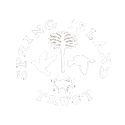Research and Conservation
Pollinators
Since 2013, LowCountry Institute staff have worked with Clemson Emeritus Professor Dr. Merle Shepard and entomologist Dr. Dwight Williams on the Spring Island Pollinator Project. Monthly sampling consists of photographing specimens for later identification, recording butterfly species and most importantly, chasing around butterflies, wasps and other species with bug nets! Another survey technique includes placing painted cups containing a soap solution in fields, gardens and other natural areas on the island. The insects, especially pollinator species, are attracted to the brightly colored cups, captured and later identified by Dr. Sam Droege at the U.S. Geological Survey as part of a long-term study assessing bee diversity on southern barrier islands. Information collected during the study is being shared with other scientists in the region to give us all a better understanding of the pollinators of the Lowcountry.
The information that has been gathered thus far provides excellent baseline information on the essential pollinator species that live in the Lowcountry. Since the study began in 2016, we have documented more than 275 species of insects visiting flowering plants.
- 75 species, 49 genera and 13 families of Hymenoptera (bees, wasps, ants)
- 53 species, 47 genera and 11 families of Lepidoptera (butterflies and moths)
- 17 species, 15 genera and 5 families of Diptera (flies)
- 4 species, 2 genera and 1 family of Orthoptera (grasshoppers and crickets)
- 8 species, 9 genera and 6 families of Hemiptera (true bugs)
- 5 species, 5 genera and 3 families of Coleoptera (beetles)
This includes two new state records (the cuckoo bee, Triepeolus concavus, which is a cleptoparasite of sunflower bees – this means that the cuckoo bee lays its eggs on pollen masses collected by the sunflower bee for its own young, thereby “stealing” the resources and Melissodes manipularis, a type of uncommon long-horned bee) and several new county records. It is expected that several other of the bee species identified by Dr. Droege will also be new state records. Many of the pollinator species have been photographed by Dr. Shepard to create a Spring Island photographic reference collection. According to the researchers, Spring Island may have the best studied pollinator population in South Carolina.
In 2019, the study yielded a species new to science! While assisting with sampling, summer intern Colleen Goff found a very small insect on a blade of sweet grass. After careful analysis by international colleagues of Dr. Shepard and Dr. Williams, it was determined that the insect is a new species of hyper-parasitoid wasp that will soon be officially named (see last photo on left).
Thanks to partial support by the Trust/LCI, Dr. Sheppard and co-authors published “Insects and Spiders of Coastal South Carolina” and "Insect Pollinators of the South Carolina and Georgia Lowcountry," pictorial field guides.
Dr. Sheppard and Dr. Williams presented their findings at the 2017 GA/SC Entomological Society joint conference.

Copyright © Spring Island Trust
40 Mobley Oaks Ln. · Okatie, SC 29909 · 843-987-7008
Site by Sans Sheriff Studio





